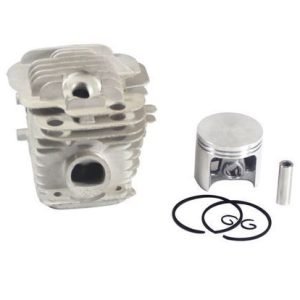A petrol generator ignition coil is a critical component that generates the high-voltage electrical current needed to create a spark in the spark plug, igniting the fuel-air mixture in the combustion chamber.
Types of ignition coils:
- Conventional coils: These are the most common type and consist of a primary winding and a secondary winding. When a current flows through the primary winding, it induces a high-voltage current in the secondary winding.
- Solid-state coils: These use electronic components to generate the high-voltage current, often resulting in improved performance and reliability.
Key functions:
- High-voltage generation: Produces the high-voltage current required to create a spark.
- Ignition timing: Controls the timing of the spark to ensure optimal engine performance.
- Durability: Must be able to withstand the high temperatures and electrical stresses involved in generating a spark.
Common issues with ignition coils:
- Failure: Ignition coils can fail due to wear, overheating, or electrical faults.
- Weak spark: A weak spark can lead to misfires, reduced engine power, and increased fuel consumption.
- Misfiring: If the ignition coil is faulty, it can cause the engine to misfire, resulting in rough running and reduced performance.
Maintenance tips:
- Regular inspection: Check for signs of damage, corrosion, or loose connections.
- Replacement: If the ignition coil is faulty, it should be replaced to restore proper engine function.
Benefits of a high-voltage ignition coil set:
- Improved performance: High-voltage ignition coils can provide a stronger spark, leading to improved engine performance and fuel efficiency.
- Reduced emissions: A stronger spark can help to ensure complete combustion, reducing emissions.
- Enhanced starting: High-voltage ignition coils can make it easier to start the engine, especially in cold weather.





Reviews
There are no reviews yet.